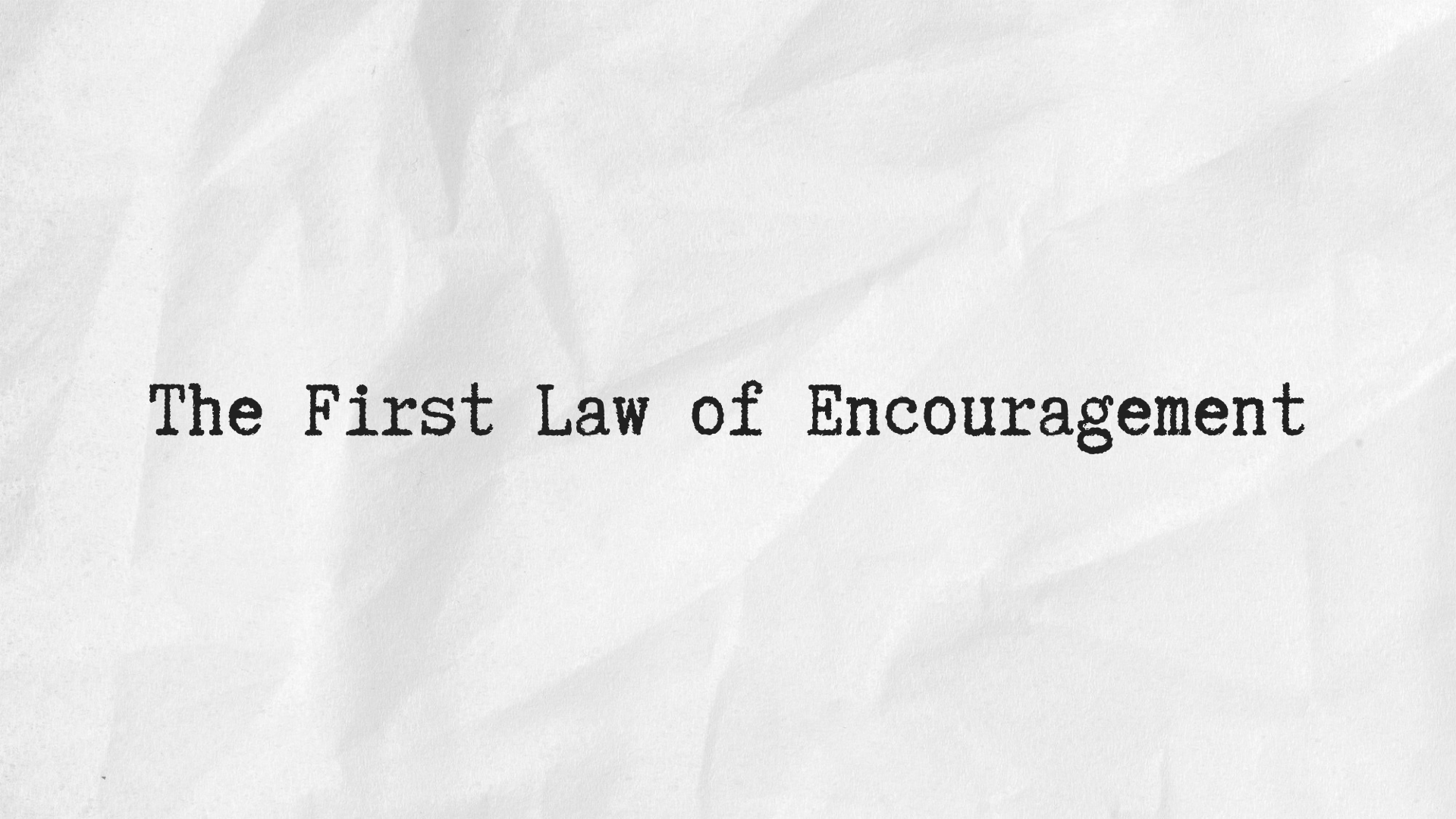My Boring Bible (part 1)
My Boring Bible (part 1)
Throughout my life, I’ve read some pretty boring Bible passages.
I know you’re not supposed to say things like that, especially when you’re a pastor, but come on, anyone who has ever read the Bible has come across places in the scriptures that just don’t resonate with us.
Places that feel totally disconnected from our lives and experiences.
Texts that drone on and on and make us want to skip ahead to the next chapter.
Verses that are, quite frankly, boring.
My most recent experience of this was reading Nehemiah 3. Over and over again we hear the same thing: “So-and-so built on this section of the wall or gate.”
We hear that same sentiment for an entire chapter. I’m like, “We get it! Everyone got to work building on the wall! Let’s please move on to something else.” Honestly, the only thing that seems to change in the chapter are the frustratingly hard-to-say Hebrew names scattered throughout!
But as I pushed through the text, a thought occurred to me. God is God. He’s the King of Kings and Lord of Lords, the Creator of the Universe. I could go on and on about who God is, but regardless of the imagery used, the bottom line is God is anything but boring. Thus, if God is anything but boring and if this really is God’s word, God’s word can’t possibly be boring. So, if God’s word can’t be boring and I’m experiencing it as such, clearly there’s a problem, but the problem isn’t with the Bible.
Which leads me to my new working assumption: If the Bible is boring, I must be the problem. I must be missing something. Something must be wrong, but that something isn’t the Bible. If and when the Bible feels boring, I’ve got to look at the scripture and say, “It’s not you, it’s me.”
While that may not sound all that encouraging, it is absolutely good news: If the problem somehow lies with us, that is a problem we can address. If the Bible was boring because God was boring, there would be nothing we could do to change that. But if we’re the problem, that is a problem that can be fixed.
For the next several blogs, we’re going to cover four different areas we should pay attention to whenever we find the Bible to be boring.
Those four areas are our:
- Motivations
- Expectations
- Understanding
- Biases
In this blog, we’ll address our first area of interest: motivations (we’ll cover the rest over the next few days).
CHECK YOUR MOTIVATIONS
Our English word ‘motive’ comes from the Latin word ‘movere’ meaning ‘to move’. Our motivations are what move us into action or towards something. When it comes to the Bible, our motives are the reasons moving us to actually read the Bible.
The next time you sit down to read your Bible ask yourself, “Why am I reading this, really?”
That last part is so important. Most of us have become masters of telling ourselves what we want to hear, not what we need to hear. If we want to move beyond where we are, it is the truth that sets us free (John 8:32). Half-truths, empty tropes, and overused cliches just will not do – not if we want the freedom Jesus promises in the scriptures. If we want to read the Bible as it really is, we’ve got to get real with ourselves by getting real about our motivations.
So, why are we reading the Bible, really?
I can’t answer that for you, but I can answer it for myself and perhaps some of my experience will resonate with yours. When I’ve found myself most detached and disconnected from the Bible, even as I read it, here are some of the motivations that have moved me:
- I read it because I had to. By ‘had to’, I don’t mean it in the “I have a fire-burning-in-my-bones” sort of way, but in the “I-have-to-preach-on-something” sort of way. I have to have something to share, something to talk about, something to present to the church. Whenever I read the Bible because I have to in this sort of way, from a place of obligation or legalistic duty, I almost always experience a palpable level of detachment with the text.
- I read it because I felt guilty. Maybe it had been a few days or few weeks since I’d sat down and really read the scriptures. Sometimes this distance between reading is a powerful, life-giving motivator, but other times, it’s not hunger, but guilt and shame that’s driving me. When guilt and shame and not hunger for God has driven me into God’s word during these seasons, the result was often more guilt and more shame.
- I read it because I had something to prove. Maybe it was a theological debate I was trying to win. Maybe I was trying to demonstrate my knowledge. Maybe I was trying to prove someone else wrong. Either way, this sort of approach to the scripture rarely ever produced life in me. Weaponizing God’s word to elevate our pride or put some else down is generally a bad idea.
I could certainly add more faulty motivations here, but I think I’ve offered enough to spark your own internal investigation. In much the same way, the Bible teaches that our motives can impact our prayers (James 4:3), I believe our motives absolutely impact the way we read and experience the Bible.
As for a healthy motivation, one could certainly turn their attention to 2 Timothy 3:16-17, 2 Peter 1:3, or Deuteronomy 6:6-7 as great starting places for refining our motivations, but I’ll leave those for you to explore on your own. Today, what I’ll leave you with these words from the Gospel of John:
Jesus provided far more God-revealing signs than are written down in this book. These are written down so you will believe that Jesus is the Messiah, the Son of God, and in the act of believing, have real and eternal life in the way he personally revealed it. ~ John 20:30-31 (MSG)
As John begins to close out his gospel, he lets us in on a little secret. Better yet, he lets us in on his motivation for writing. John tells us that he wrote so that we might believe in Jesus and find life in him.
If John’s motivation for writing his scriptures was for us to meet Jesus and find life in him, maybe our motivation for reading should start in the same place: to experience Jesus and find life in him.
Sounds like a great motivation to me. If the scriptures are feeling boring and lifeless, starting by checking your motivations.
Sunday Morning Service Times:
9:00 AM Traditional
10:30 AM Contemporary
About:
Here at Deer Lake, we want to be the church IN the Community, FOR the Community to the glory of God and for the sake of the world.








